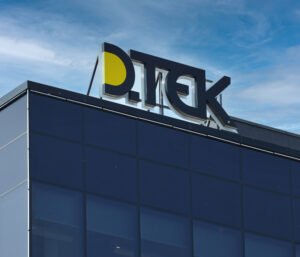
The DTEK energy holding company has returned to hourly power cuts (HPC) for consumers in the Kyiv region, the company said on its Telegram channel on Monday.
“Energy companies have managed to stabilize the power supply situation in the Kyiv region. At the same time, it remains difficult and may change,” the company said.
According to the schedules provided in DTEK’s statement, the current HOPS in the Kyiv region provide for intervals of 7 hours without electricity during the daytime.
“In case of changes, we will inform you on our Telegram channel,” DTEK warned consumers.
At the same time, as of January 24, emergency power outage schedules (GAO) continued to operate in Kyiv and several regions of Ukraine.
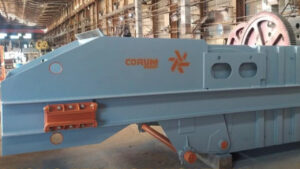
Corum Druzhkivka Machine Building Plant (Corum DrMZ), part of the Corum Group (DTEK Energy), plans to ship a skip with a lifting capacity of 23 tons for the DTEK Energo mine in late 2025 or early 2026, the plant announced on Facebook.
“This is not the largest skip in the history of Corum DrMZ, but it belongs to a large type series. Its height is about 16 m. The new equipment is part of the mine’s lifting complex upgrade program,” the statement said.
The skip is designed to transport coal and rock mass along the vertical shaft of the mine.
The plant also reports that by the end of this year, it plans to complete the manufacture and delivery of metal structures for energy infrastructure facilities.
“These are complex dimensional elements that must operate within a precisely defined geometry and integrate accurately into existing structures. The length of individual items reaches almost 45 m, and the total tonnage of metal exceeds 110 tons,” the company notes.
According to Korum DrMZ, it has manufactured similar metal structures before: in the spring of this year, the volume of similar work amounted to more than 97 tons.
“The current order is a one-off, but the plant is well acquainted with this type of work and has the technical expertise,” the statement said.
Korum DrMZ, which relocated from Druzhkivka (Donetsk region) to Dnipro in 2022, in January-September this year, according to YouControl, incurred losses of almost UAH 90 million, compared to a net profit of UAH 4.6 million for the same period last year and slightly lower net sales revenue of UAH 844.6 million.
In January-October, the plant manufactured 336 units of mining equipment, repaired 12 units of equipment, and produced over 821,000 parts.
Corum Group is a leading manufacturer of mining equipment in Ukraine. It is part of DTEK Energy, an operating company responsible for coal mining and coal-fired power generation within Rinat Akhmetov’s DTEK energy holding.
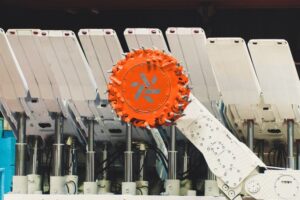
Corum Druzhkivka Machine-Building Plant (Corum DrMZ), part of the Corum Group (DTEK Energy), plans to complete the manufacture of a two-story cage for DTEK Energy in December this year, the plant announced on Facebook.
The equipment, with a lifting capacity of 13.2 tons, is designed to lower and lift people, as well as to transport trolleys, materials, and equipment through a vertical shaft.
The plant notes that the cage is based on a serial design, but has been fully adapted to the conditions of future operation.
Improvements include an updated anti-corrosion coating, reinforced door assemblies with three bolts, and different types of cladding on each floor to withstand different loads.
A separate element of the design has recently been patented.
Korum DrMZ, relocated in 2022 from Druzhkivka (Donetsk region) to Dnipro, in January-September this year, according to YouControl, incurred losses of almost UAH 90 million compared to a net profit of UAH 4.6 million for the same period last year and slightly lower net sales revenue of UAH 844.6 million.
In January-October, the plant manufactured 336 units of mining equipment, repaired 12 units of equipment, and produced over 821,000 parts.
Corum Group is a leading manufacturer of mining equipment in Ukraine. It is part of DTEK Energy, an operating company responsible for coal mining and coal-fired power generation within Rinat Akhmetov’s DTEK energy holding.

In January-August 2025, DTEK Energy allocated UAH 4.9 billion to the development of coal enterprises, which made it possible to maintain production capacity and introduce modern technologies.
“To maintain an adequate level of coal production, the company continues to prepare new longwalls. Since the beginning of the year, 14 new longwalls have been put into operation, which makes it possible to maintain the necessary volume of fuel production for Ukraine’s thermal power generation,” the company said in a press release.
Since the start of the full-scale war, the company’s investments in supporting mines, repairing and modernizing equipment, and improving staff safety have totaled nearly UAH 23 billion.
“We continue to invest in the restoration of generating capacities and coal enterprises, because our main goal on the eve of the new heating season is to maintain the reliability of thermal power generation and the energy system as a whole,” said DTEK Energy CEO Alexander Fomenko.
DTEK Energy provides a closed cycle of electricity production from coal. As of January 2022, the installed capacity in thermal power generation was 13.3 GW. A complete production cycle has been created in coal mining: coal extraction and enrichment, machine building, and maintenance of mining equipment.
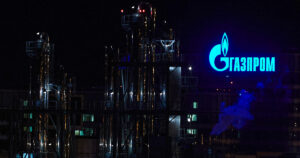
The DTEK energy holding company in the Netherlands has secured the seizure of assets belonging to Gazprom International Limited, a company controlled by the Russian Federation, in the form of a 50% stake in the Dutch company Wintershall Noordzee B.V., as part of the enforcement of an arbitration award.
“Gazprom International Limited appealed the seizure, but the District Court of The Hague rejected Gazprom International Limited’s appeal and upheld the seizure,” DTEK told Interfax-Ukraine news agency.
The company recalled that after the illegal occupation of Crimea in 2014, Russia also illegally seized and expropriated all assets of the energy distribution company DTEK Krymenergo, which distributed and supplied electricity in Crimea.
In 2017, DTEK Krymenergo filed a lawsuit with the International Court of Arbitration in The Hague, demanding that Russia pay damages caused by the illegal expropriation. In 2023, the international arbitration court in The Hague upheld DTEK’s claim and awarded damages of approximately $267 million from the Russian Federation, including interest, which will accrue until full payment is received.
“Since Russia did not comply with the international court’s decision and did not pay the damages awarded, DTEK initiated enforcement proceedings to recover damages from Russia in countries where Russian assets are located,” the energy holding company said.
Currently, active enforcement procedures and measures against Russia are being carried out in the United States, the United Kingdom, the Netherlands, the Czech Republic, and Israel. In addition, measures are being developed for enforcement in other jurisdictions.
As reported, in the fall of 2023, the International Court of Justice in The Hague fully upheld DTEK’s claim against Russia regarding seized assets in the illegally annexed Crimea and ordered Russia to pay the Ukrainian company compensation in the amount of $267 million. The arbitration award is enforceable under the 1958 New York Convention.
At the same time, the energy holding company noted that it plans to immediately initiate the process of recognition and enforcement of the award in the territories of those states where Russia has assets.
DTEK Krymenergo was the largest electricity supplier on the Crimean peninsula, providing more than 80% of its supply.
Wintershall Noordzee B.V. is engaged in the exploration and production of natural gas in the North Sea on the continental shelf of the Netherlands and the United Kingdom. Wintershall Noordzee B.V. is a subsidiary of the German company Wintershall Dea.
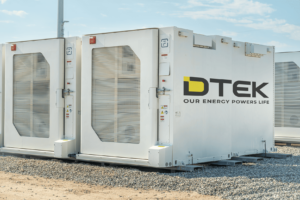
DTEK, together with the American company Fluence, has built a 200 MW energy storage facility (ESF), which is currently the largest such complex in Ukraine, the energy holding company reported.
“The DTEK Group has commissioned 200 MW of ESS facilities, created in partnership with the leading American company Fluence, a global leader in energy storage. The company has connected six new facilities of various capacities, ranging from 20 to 50 MW, to the power grid in the Kyiv and Dnipropetrovsk regions,” DTEK said in a press release on Thursday.
According to the release, DTEK’s investment in the construction of the complex, which lasted from March to August 2025, amounted to EUR125 million, and in total, the system will be able to store 400 MW*h of electricity, which is enough to supply 600,000 Ukrainian homes for two hours.
“In the context of massive attacks on the Ukrainian power system, the role of energy storage systems has become as fundamental as generation itself. The National Renewable Energy Action Plan until 2030, adopted by the government, clearly defines the need for such installations, and today we are seeing strategic goals being implemented. I am grateful to the DTEK Group for its proactivity in this matter and to our American partners at Fluence for their advanced technologies, thanks to which each new megawatt of storage acts as a shield for the entire power system. This means greater security for Ukrainians and fewer risks of emergency blackouts,” commented Ukrainian Energy Minister Svitlana Grinchuk.
DTEK CEO Maxim Timchenko called the launch of the UZE complex a historic step for the Ukrainian power grid, which will determine its development for years to come.
“We implemented it together with Fluence, a global leader in energy storage. In cooperation with our American partners, we are integrating the most advanced technologies to make Ukraine’s power system more reliable and resilient,” he said.
According to Fluence CEO Julian Nebreza, this is a joint contribution to creating a stronger, more resilient, and decentralized energy system that will ensure Ukraine’s long-term stability.
“We are honored to be working with DTEK on this landmark energy storage project. The extraordinary determination and efficiency that DTEK has demonstrated in implementing this project is truly inspiring. This achievement is a testament to resilience and a symbol of what can be achieved through close international cooperation. Even in these extremely challenging times, innovation and partnership can pave the way to greater energy security,” Nebreda emphasized.
As reported, DTEK and Fluence announced their intention to implement a project for modern energy storage systems (ESS, energy storage, energy storage facilities) in Ukraine with a capacity of 200 MW and a cost of EUR140 million in January 2025. It involved six energy storage facilities.
In June 2025, the DTEK energy holding received a EUR67 million loan from a consortium of Ukrainian banks consisting of Oschadbank, PUMB, and Ukrgasbank (UGB) for the construction of an 180 MW ESS.
At the time, the energy holding company noted that this was the first loan of this scale in Ukraine for the development of energy storage technologies, and the project itself was one of the largest in Eastern Europe.
DTEK won a special auction held by NPC Ukrenergo for the provision of automatic frequency restoration reserve (AFRR) services with 140 MW of UZE. Under the terms of the auction, NEC will purchase these services at the auction price for five years, starting October 1, 2025.
Fluence, headquartered in Washington, was founded in 2018 by Siemens and AES Corporation. The company has built approximately 35 GWh of energy storage capacity and approximately 30 GW of renewable energy sources.
Fluence has significant experience in integrating energy storage facilities into national energy infrastructures, with a portfolio of energy storage projects with a capacity of 201 MW in Lithuania and 450 MW in Germany.
DTEK was established in 2005 to manage the energy assets of Rinat Akhmetov’s System Capital Management (SCM, Donetsk) group. The corporation has been delegated the functions of strategic management of the group’s enterprises, which have formed a vertically integrated chain of coal mining and enrichment, electricity production and sales.